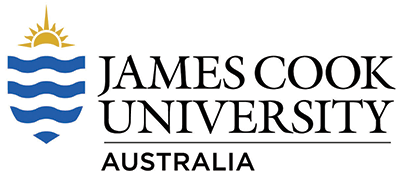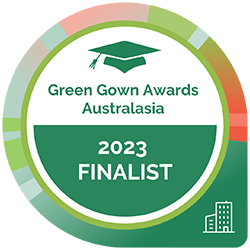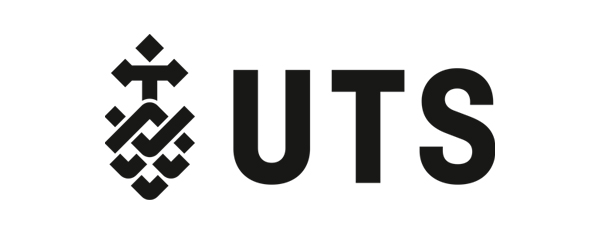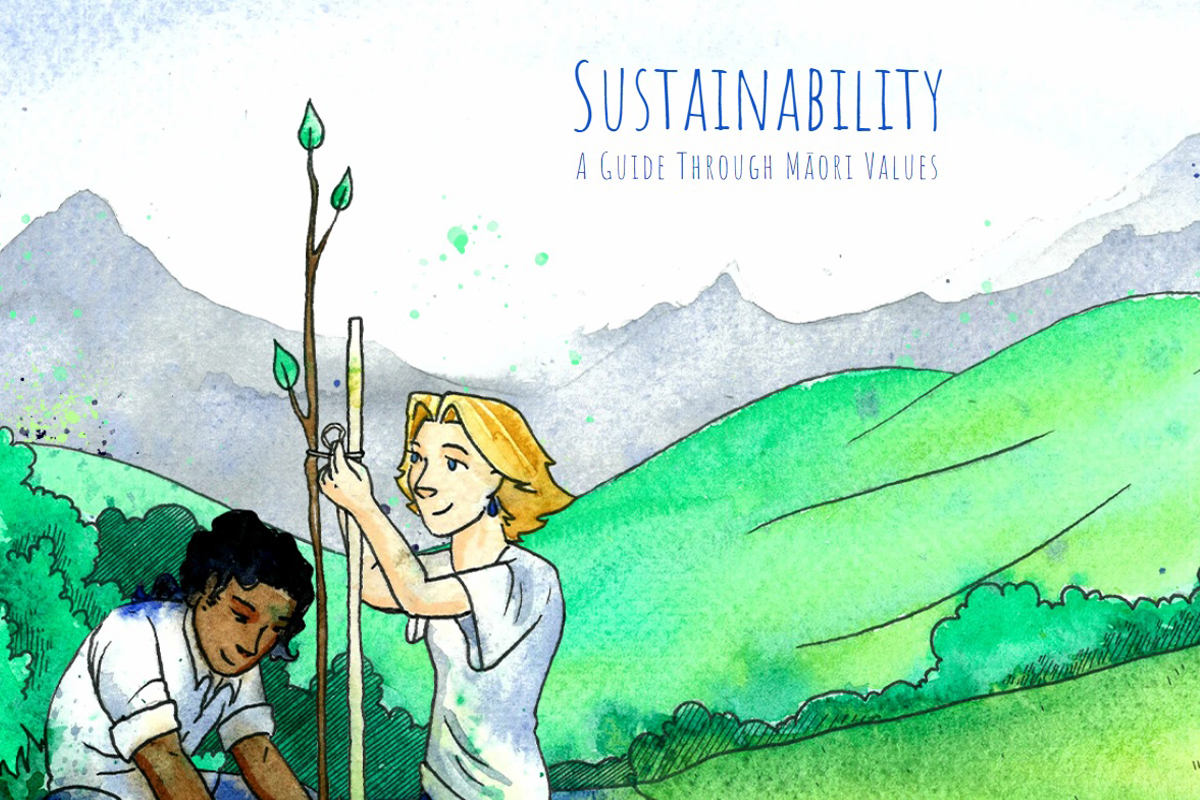Diversity, Equity & Inclusion in Sustainability category
The purpose of the UTS Climate Impact Lab is to use the expertise and research capacity of the university to improve the lives of social housing residents living in the university’s local precinct. As an energy dense urban campus, UTS cannot meet its emission reduction ambitions entirely on site. As such, an opportunity existed for UTS to co-design climate innovations with its neighbours and surrounding communities as a local anchor for carbon innovation. The Lab brought together different parts of the university working on climate change, including the UTS Institute for Sustainable Futures (ISF), Centre for Social Justice & Inclusion (CSJI), and UTS Sustainability (Operations Division), as well as NSW government agencies, housing providers, and social and public housing residents and community partners in the neighbouring suburb of Glebe.
The project undertook applied research and provided the problem-solving experience and capabilities of UTS graduates to address climate change with the local community, and in the process, help reduce energy bills, and make homes more comfortable for low-income social housing residents. Reducing greenhouse emissions in social housing can have a positive financial impact for tenants, potentially saving over $400 per year per household, while at the same time improving comfort, liveability and general health and wellbeing. Unfortunately, research shows there are several systemic barriers that limit the adoption of energy-efficient technologies and improvements in social housing. Therefore, the focus of the project was to apply decarbonisation options for social housing buildings in Glebe, through a series of energy initiatives including housing retrofits, rooftop solar, and solar gardens.
The Glebe project process
December 2021: Workshop to better understand the issues by exploring the lived experiences of stakeholders which resulted in three key themes to explore: empowering social housing tenants, enabling community action, and facilitating (shared) investment.
August 2022: Stakeholder interviews – identifying the opportunities and barriers associated with retrofits in Glebe (NSW government agencies (LAHC, OECC); City of Sydney, Mission Australia; Bridge housing; Ventia; community representative).
August – October 2022: Energy audits – across 25 households in Glebe public housing; energy use data collection.
February – October 2022: UTS student projects:
- Faculty of Arts and Social Sciences and UTS Shopfront (mapped systematic challenges of social housing, sustainability, and climate change).
- Bachelor of Creative Intelligence and Innovation Project (developed a five-year plan to support sustainability initiatives for social housing with Ventia).
- Design Honours student project (developed responses to impacts of extreme heat events on social housing residents).
- Faculty of Engineering and IT projects (created the Glebe share app to help community members track and act on energy use).
October/November workshops: Developing action plans to develop program ideas and pilots.
December: Glebe community feedback to share findings and next steps moving forward.

Environmental and social benefits
Climate change impacts and energy stress within low-income households has been recognised in recent years. Research has been published about energy poverty, energy vulnerability, and energy justice in Australia. Improving energy efficiency through home retrofits can significantly benefit health and well-being, reduce energy costs, improve comfort as well as lower carbon emissions.
In contributing to these outcomes, the project sought to involve communities often marginalised from decision making processes. The collaborative process itself contributed to giving a platform to residents of social and public housing, and used lived experience to improve decision making and contribute to systems change.
The project’s focus was working to identify and overcome the barriers to decarbonise social housing stock through energy efficiency measures in partnership with key stakeholders including governments, local businesses, community organisations, and individual low-income Glebe residents. Barriers included:
- poor maintenance and services outside the priority areas
- constrained role and hesitation of community housing providers
- the need for resource prioritisation for energy efficiency improvement programs
- challenges of and higher costs associated with heritage-listed housing stock
- layers, complex processes, and multiple stakeholders involved in general maintenance and development approvals
- current divided responsibilities in social housing.
The project identified and then focused on three areas of energy waste where intervention has the greatest potential for positive impact:
- Home heating and cooling
- Hot water systems
- Home appliances
Leadership and engagement
The World Health Organisation (WHO) cites evidence for a link between cold indoor temperatures and poor health outcomes. Studies have found that most low-income households in southern Australia experience indoor temperatures below 18 degrees during winter, which is below WHO’s recommendations for cold seasons. Tenants in the rental housing sector (including social housing) are the poorest and the most vulnerable due to poor housing conditions, and the inability to modify the buildings in which they live.
This project aimed to tackle these issues by conducting research to better understand the underlying drivers and barriers, then apply that research to provide interventions to directly try to improve the lives of social housing residents. By working alongside the community to plan the approach and implement the approach, the project was able to gain better insight into energy usage and thermal comfort for social housing residents.
Significance to the sector
Marginal voices are commonly left out of decision-making processes, and system-level responses to sustainability matters. This initiative is distinct in its centralising of community voice and experience as a significant source of knowledge. By drawing on a combination of both contextual and disciplinary expertise, the approach will ensure that future decisions are well-informed and have the best potential of take-up.
Wider societal impact
Findings from the project can be applied to all low-socioeconomic households across Australia and is especially relevant to all types of social and community housing owned and operated by government agencies, or private and community organisations.
Learner/Graduate employer impact
The project contributed to work-readiness for those students engaged in this initiative. Participants experienced working with real clients and stakeholders and collaborated to find solutions to real-world wicked problems. Graduate employers would benefit from the development of complementary capabilities gained by these potential future employees.
Top 3 learnings
Related finalists
Diversity, Equity & Inclusion in Sustainability/Winners
Diversity, Equity & Inclusion in Sustainability/Winners
Diversity, Equity & Inclusion in Sustainability
Diversity, Equity & Inclusion in Sustainability
Other finalists
Climate Action
Climate Action
Sustainability Champion – Staff/Winners
Sustainability Champion – Staff/Winners
Student Engagement
Student Engagement
Creating Impact
Creating Impact
Sustainability Champion – Staff/Winners
Sustainability Champion – Staff/Winners
Sustainability Champion – Student
Sustainability Champion – Student
Top 3 learnings
Diversity, Equity & Inclusion in Sustainability category
The purpose of the UTS Climate Impact Lab is to use the expertise and research capacity of the university to improve the lives of social housing residents living in the university’s local precinct. As an energy dense urban campus, UTS cannot meet its emission reduction ambitions entirely on site. As such, an opportunity existed for UTS to co-design climate innovations with its neighbours and surrounding communities as a local anchor for carbon innovation. The Lab brought together different parts of the university working on climate change, including the UTS Institute for Sustainable Futures (ISF), Centre for Social Justice & Inclusion (CSJI), and UTS Sustainability (Operations Division), as well as NSW government agencies, housing providers, and social and public housing residents and community partners in the neighbouring suburb of Glebe.
The project undertook applied research and provided the problem-solving experience and capabilities of UTS graduates to address climate change with the local community, and in the process, help reduce energy bills, and make homes more comfortable for low-income social housing residents. Reducing greenhouse emissions in social housing can have a positive financial impact for tenants, potentially saving over $400 per year per household, while at the same time improving comfort, liveability and general health and wellbeing. Unfortunately, research shows there are several systemic barriers that limit the adoption of energy-efficient technologies and improvements in social housing. Therefore, the focus of the project was to apply decarbonisation options for social housing buildings in Glebe, through a series of energy initiatives including housing retrofits, rooftop solar, and solar gardens.
The Glebe project process
December 2021: Workshop to better understand the issues by exploring the lived experiences of stakeholders which resulted in three key themes to explore: empowering social housing tenants, enabling community action, and facilitating (shared) investment.
August 2022: Stakeholder interviews – identifying the opportunities and barriers associated with retrofits in Glebe (NSW government agencies (LAHC, OECC); City of Sydney, Mission Australia; Bridge housing; Ventia; community representative).
August – October 2022: Energy audits – across 25 households in Glebe public housing; energy use data collection.
February – October 2022: UTS student projects:
- Faculty of Arts and Social Sciences and UTS Shopfront (mapped systematic challenges of social housing, sustainability, and climate change).
- Bachelor of Creative Intelligence and Innovation Project (developed a five-year plan to support sustainability initiatives for social housing with Ventia).
- Design Honours student project (developed responses to impacts of extreme heat events on social housing residents).
- Faculty of Engineering and IT projects (created the Glebe share app to help community members track and act on energy use).
October/November workshops: Developing action plans to develop program ideas and pilots.
December: Glebe community feedback to share findings and next steps moving forward.

Environmental and social benefits
Climate change impacts and energy stress within low-income households has been recognised in recent years. Research has been published about energy poverty, energy vulnerability, and energy justice in Australia. Improving energy efficiency through home retrofits can significantly benefit health and well-being, reduce energy costs, improve comfort as well as lower carbon emissions.
In contributing to these outcomes, the project sought to involve communities often marginalised from decision making processes. The collaborative process itself contributed to giving a platform to residents of social and public housing, and used lived experience to improve decision making and contribute to systems change.
The project’s focus was working to identify and overcome the barriers to decarbonise social housing stock through energy efficiency measures in partnership with key stakeholders including governments, local businesses, community organisations, and individual low-income Glebe residents. Barriers included:
- poor maintenance and services outside the priority areas
- constrained role and hesitation of community housing providers
- the need for resource prioritisation for energy efficiency improvement programs
- challenges of and higher costs associated with heritage-listed housing stock
- layers, complex processes, and multiple stakeholders involved in general maintenance and development approvals
- current divided responsibilities in social housing.
The project identified and then focused on three areas of energy waste where intervention has the greatest potential for positive impact:
- Home heating and cooling
- Hot water systems
- Home appliances
Leadership and engagement
The World Health Organisation (WHO) cites evidence for a link between cold indoor temperatures and poor health outcomes. Studies have found that most low-income households in southern Australia experience indoor temperatures below 18 degrees during winter, which is below WHO’s recommendations for cold seasons. Tenants in the rental housing sector (including social housing) are the poorest and the most vulnerable due to poor housing conditions, and the inability to modify the buildings in which they live.
This project aimed to tackle these issues by conducting research to better understand the underlying drivers and barriers, then apply that research to provide interventions to directly try to improve the lives of social housing residents. By working alongside the community to plan the approach and implement the approach, the project was able to gain better insight into energy usage and thermal comfort for social housing residents.
Significance to the sector
Marginal voices are commonly left out of decision-making processes, and system-level responses to sustainability matters. This initiative is distinct in its centralising of community voice and experience as a significant source of knowledge. By drawing on a combination of both contextual and disciplinary expertise, the approach will ensure that future decisions are well-informed and have the best potential of take-up.
Wider societal impact
Findings from the project can be applied to all low-socioeconomic households across Australia and is especially relevant to all types of social and community housing owned and operated by government agencies, or private and community organisations.
Learner/Graduate employer impact
The project contributed to work-readiness for those students engaged in this initiative. Participants experienced working with real clients and stakeholders and collaborated to find solutions to real-world wicked problems. Graduate employers would benefit from the development of complementary capabilities gained by these potential future employees.
Related finalists
Diversity, Equity & Inclusion in Sustainability/Winners
Diversity, Equity & Inclusion in Sustainability/Winners
Diversity, Equity & Inclusion in Sustainability
Diversity, Equity & Inclusion in Sustainability
Other finalists
Climate Action


Driving Towards Tomorrow’s Campus with Vehicle-to-Grid EV Technology
As part of Flinders University’s drive to innovate and become a leader in climate action, the University launched its Vehicle-to-Grid (V2G) initiative. This involved installing and maintaining 20x V2G and smart chargers for its growing electric vehicle fleet. Leveraging 100% renewable energy generated by ENGIE’s Willogoleche Wind Farm and Flinders University’s solar power systems, this enables the storage of renewable energy in EV batteries to be discharged on campus during peak demand periods. Hence, allows for these EV fleets to operate as a Virtual Power Plant (VPP) to deliver peak demand management and optimization of behind-the-meter generation.
Overall, this initiative demonstrates the reliability and scalability of bi-directional and uni-directional smart-charging systems for EVs in reducing GHG emissions while facilitating teaching, research, and innovation opportunities. Moreover, it exemplifies a sustainable and innovative solution to scale energy storage technology and increase renewables.
Sustainability Champion – Staff/Winners


Brandan Espe
Environmental Officer / Acting Grounds Supervisor
Brandan has brought over 50 federally listed Endangered species of plant into the James Cook University living collection, many of which have never been cultivated and are found in no other collection in the world.
Of these, over half have been sustainably wild collected, inclusive of field and clone data, so they can be used for ongoing conservation, research and teaching, the remaining being sourced from private and partner organisations through favours of service or trades.
He personally funded the project from 2019-2022, until funding was awarded for the program due to its success, with the program now being engrained into the Universities landscapes for ongoing management should he leave JCU, creating a threatened species legacy collection.
The program has now expanded beyond this, with an additional 48 species now funded for further addition, some of which are only known from less than 5 sightings in history.
Student Engagement


Sustainability Leaders creating real impact!
La Trobe created a unique Sustainability Leaders volunteering program to increase engagement with students on campus and empower them to act against waste and promote sustainability. It included the following initiatives:
- Promoting the reusable crockery implementation,
- Increasing knowledge action of other students on campus to diversion comingled recycling and organic waste from landfill.
- Focus on waste audits and data,
- Improved signage through new waste posters for students living on campus.
- Collaboration with Cirka (our cleaning and waste partner) to create a waste wall and;
- Learning all things sustainability (net zero, biodiversity, waste, reusables, engagement)
These initiatives yielded significant results and with a reduction in waste contamination by almost 40% at the residential buildings and engagement with over 80 groups of people for the Reusable Revolution.
Creating Impact


Where knowledge meets habits: Empowering students for a sustainable tomorrow
Our online Sustainability Challenges offer participants an engaging, self-paced learning experience centered around a specific United Nations Sustainable Development Goal (UNSDG). Requiring minimal resourcing and at zero-cost to participants, we’ve created replicable, compact, scalable, and impactful learning opportunities that result in real impact.
The Challenges follow a structured process that moves participants from knowledge gain to simple action to celebration, to establish small but mighty habits relating to waste and carbon emissions. This approach recognises that knowledge alone is often insufficient to drive behaviour change, and that ease of action and celebration are crucial components in creating sustainable habits.
Sustainability Champion – Staff/Winners


Catherine (CeeJay) Donovan
Veterinary nurse – Anaesthesia
From establishing the Massey Vet School Green Team to leading impactful initiatives, my commitment to environmental sustainability has been making waves. With the help of my team, I have accomplished numerous small, yet meaningful actions, including integrating a sustainability lecture for final year vet students and implementing battery recycling alongside rechargeable battery use. Our larger projects encompass the introduction of green waste and soft plastics recycling bins, an energy audit resulting in power-saving measures, and playing a part in a successful rubbish audit. I spearheaded the ‘6 in 6’ campaign, empowering individuals with six simple steps for workplace sustainability. Through the SustainaVet social media pages I help to educate and inspire peers nationwide. As the Massey School of Veterinary Science sustainability champion, I had the privilege of speaking at the annual veterinary conference on sustainability in clinical practice. Currently I’m conducting pioneering research on responsible cat waste disposal. Together, we’re forging a greener future, one initiative at a time.
Sustainability Champion – Student


Louis Walmsley
SDG Coordinator Monash Association of Sustainability, Office Bearer Monash Student Association’s Environmental and Social Justice Department, Masters of Environment and Sustainability Student
Louis is an exceptional student sustainability leader at Monash University. His passion and dedication to sustainability have made a significant impact on the community. Louis’s values revolve around sustainability, which is evident upon meeting him. He actively participates in various sustainability groups, demonstrating his commitment to creating a more environmentally conscious society.
One of Louis’s notable involvements is with Precious Plastic Monash, where he organizes remarkable events and fosters collaboration among like-minded individuals, student groups, and staff. His contributions to the Monash Association of Sustainability have allowed him to conduct valuable research on plastic usage and climate action, resulting in positive changes within the university.
Through his work with the Monash Student Association, Louis has engaged hundreds of students in fun and interactive sustainability initiatives. He took the initiative to organize a sustainability food fair, which was one of the largest sustainability-related events held at Monash post-COVID. This accomplishment is a true testament to Louis’s hard work and creativity.
Louis is an outstanding student leader whose efforts in sustainability have had a lasting impact on Monash University and its community. His inspiring nature resonates with everyone who knows him.






